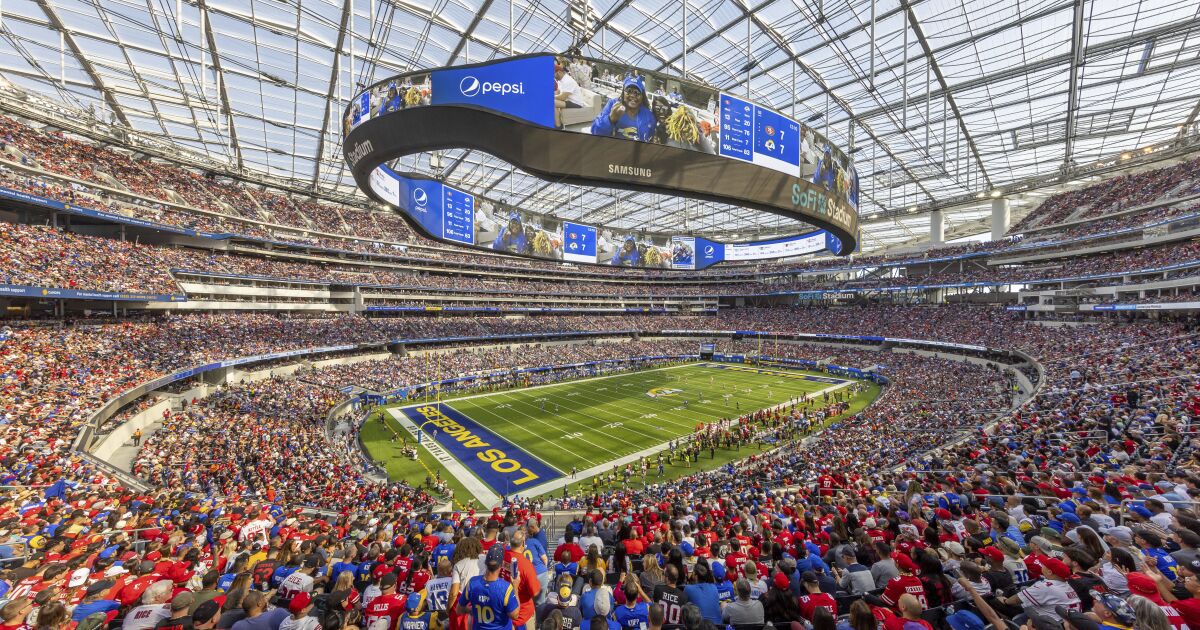How sports helped drag L.A. out of pandemic unemployment rut

Three years into the pandemic, many workers have not returned to the office. Some never will.
The restaurants, bars and shops that welcomed those workers have struggled. Some have closed for good.
To the rescue: Sports!
That is overstating it some, but the return of fans to stadiums and arenas across Southern California has bolstered a slow revival of the hospitality industry.
The roughly 10 million fans attending the home games of the 12 major professional teams in Los Angeles and Orange counties last year boosted opportunities for cooks, bartenders, waiters, customer service associates and other jobs that require people to show up so you can serve them — at the game, and at nearby places at which fans stop before and after the game.
“When you’re not having the same number of people driving into an area and supporting these services, that industry has changed completely,” said Shannon Sedgwick, director of the Institute for Applied Economics at the Los Angeles County Economic Development Corporation (LACEDC).
“This is a little bit of a ray of hope.”
Of the 770,000 local jobs lost in the first two months of the pandemic, the LACEDC said the hospitality industry bore the brunt of the cuts.
The sports industry accounted for an estimated $7 billion in economic impact last year, according to an LACEDC study released Wednesday. The study, commissioned by the L.A. Sports Council, credited those 10 million fans with “kickstarting the economic activity that surrounds home games.”
The sporting industry is a relatively tiny part of the Southland’s economy. In comparison, the LACEDC said, the bioscience industry accounted for $44 billion in economic impact in 2020.
High-profile sports competitions generally are touted as golden tickets for economic impact, although academic research often finds the economic hype exaggerated at best. Sedgwick said the study did not account for the impact of this year’s Super Bowl at Sofi Stadium or All-Star Game at Dodger Stadium.
With college football’s national championship coming to Sofi Stadium in January, and the World Cup and Olympic Games soon to follow, Sedgwick noted the Southland can reap the benefits of such special events, concerts and games without local governments paying to build sports facilities.
Private financing makes sense for team owners in a market of 20 million people, said Stephen Cheung, the LACEDC president.
In other cities, governments often provide taxpayer funding for venues in part because of the hope of luring special events that might generate economic impact.
“I don’t think there’s a one-size-fits-all answer,” Cheung said. “It works for us, but it might not work for another city, with a less diversified region. Other regions might depend on public dollars to do that, and it might not make sense. There’s not an easy way to say whether building these stadiums will work for every city.”
For all the latest Sports News Click Here
For the latest news and updates, follow us on Google News.

